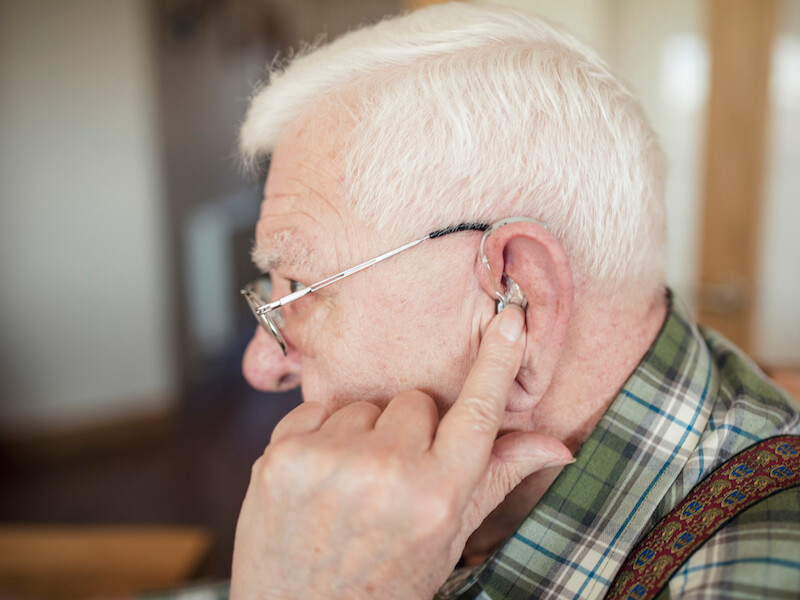
Do you feel like your hearing aid batteries are not keeping a charge as long as they should? Here are some surprising reasons that could happen.What is the average amount of time that your hearing aid batteries should keep a charge? Anywhere from 3 to 7 days is normal. That’s a very wide range. So wide, actually, that it’s unpredictable and leaves you in a serious predicament. You might be on day 4 at the grocery store when suddenly, things get quiet and you can’t hear the cashier. Or it’s day 5 and you’re enjoying a call with friends when suddenly you find yourself feeling really alone because you can no longer hear the conversation. Sometimes the batteries don’t even make 3 days. Like when you’re watching TV on day 2 and suddenly you can’t hear the show your watching. It’s more than a little inconvenient. You’re missing out on life because you don’t know how much juice is left in your hearing aids. If your hearing aid batteries are draining too fast, there are a small number of likely culprits.
A Battery Can be Depleted by Moisture
Did you know that humans are one of the few species that produce moisture through their skin? We do it to cool down. It’s the body’s way of purging the blood of toxins and sodium. Moreover, you might live in a humid or rainy climate where things get even wetter. This extra moisture can clog the air vent in your device, making it less efficient. It can even drain the battery directly by interacting with the chemicals that generate electricity. You can prevent moisture-related battery drainage with these measures:
- Don’t leave the batteries in when you’re storing them for a number of days
- Open the battery door before storing the hearing aids
- A dehumidifier for your hearing aid is beneficial
- Don’t keep your hearing aids in the bathroom, kitchen or other moist environments
Advanced Hearing Aid Functions Can Run Down Batteries
Current digital hearing aids help people hear a lot better than ones that came out just 10 years ago. But these extra features can cause batteries to run down faster if you’re not keeping an eye on them. You can still use your favorite features. But remember, you will need to change the battery sooner if you are streaming music from your phone for hours. Bluetooth, multichannel, tinnitus relief, noise canceling — all of these added features can deplete your battery.
Altitude Changes Can Impact Batteries Too
Your batteries can be drained if you go from low to high altitudes particularly if they are already low on juice. Bring some spare batteries if you are going on a plane or high up into the mountains.
Perhaps The Batteries Aren’t Really Low
Some hearing aids let you know when the battery is running low. As a general rule, these warnings are giving you a “heads up”. They’re not telling you the battery is depleted. Additionally, the charge can sometimes drop briefly due to altitude or environmental changes and that can cause a false low battery warning. In order to end the alarm, remove the batteries, and then put them back in. You might be able to get a few more hours or possibly even days out of that battery.
Handling Batteries Improperly
Wait until you’re ready to use your hearing aid to remove the tab from the battery. Steer clear of getting skin oil and dirt on your hearing aid by cleansing your hands before handling them. Hearing aid batteries should not be frozen. It doesn’t lengthen their life as it could with other kinds of batteries. Simple handling mistakes like these can cause hearing aid batteries to drain faster.
It’s Not a Good Idea to Purchase a Year’s Supply of Batteries
Buying in bulk is often a smart money move if you can afford to do it. But the last few batteries in the pack probably won’t have full power. Try to stay with a 6-month supply or less unless you’re fine with the waste.
Purchasing Hearing Aid Batteries Online
This isn’t a general criticism of buying things on the internet. There are some pretty great deals out in cyberspace. But some less scrupulous people sell batteries online that are very near to the expiration date. Or even worse, it has already passed. So buyer beware.
Both alkaline (AA, AAA, etc.) and zinc hearing aid batteries have a date they will expire. You wouldn’t buy milk without looking at the expiration. You should do that with batteries too. If you want to get the most out of your pack, be certain the date is well in the future. It’s probably a smart idea to message the vendor if there isn’t an expiration date or better yet, come see us for your battery needs. Be sure you know and trust the seller.
Modern Hearing Aids Are Rechargeable
Hearing aids may drain too rapidly for numerous reasons. But by taking some precautions you can get more energy out of each battery. You might also think about rechargeable hearing aids if you’re going to buy a new set. If you charge them at night, you get a full day of hearing the next day. The rechargeable batteries only need to be replaced every few years.